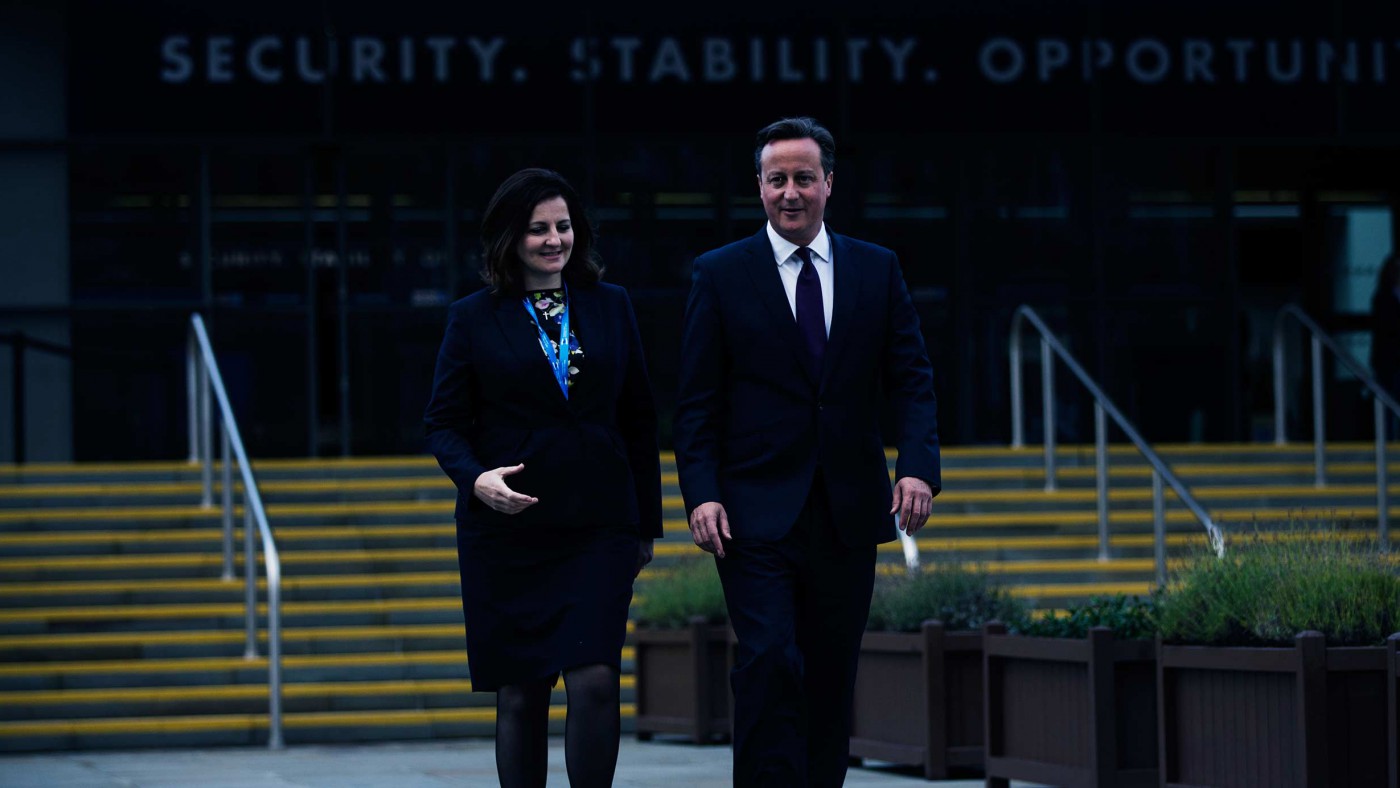The Conservative party conference in Manchester brought up some debates around women and the Tory party, bringing up the age old question of whether the party has ‘a woman problem’.
The Prime Minster David Cameron’s well-received closing speech committed to tackling ‘deep social problems’ and boost social mobility in society. He committed to ‘finish the fight for real equality’ in a move celebrated by moderate members of the party. I was particularly pleased to hear him condemn ‘passive tolerance’ of female genital mutilation and forced marriages, a long standing abuse suffered by women and girls.
The discussion around women and the Tories followed social media frenzy following an allegation that some female MPs had accused their party of lining them up as ‘arm candy’. The Spectator criticised the Prime Minister’s choice to use a number of the ‘rather impressive 2015 intake’ to accompany him walking between buildings for photo opportunities. This prompted to the Minister for Education Nicky Morgan joked that her female counterparts in the party would ‘flatten’ any journalist that dared describe them in that way.
Only 3 out of 10 MPs in the House of Commons are women. Nearly 100 years after women gained the right to vote, the debate about the visibility and presence of women of parliament rages on. 68 of the 303 Conservative MPs are female, a fantastic 40% increase on the previous intake in an election campaign with more female Tory candidates than ever. The 2015 election brought us one step closer to a gender-balanced parliament, with a record-breaking seven women taking up their seats as Cameron’s Cabinet Ministers. Baroness Anne Jenkin wrote:
‘One thing is for sure: the Conservative party does not lack female talent. This new 2015 intake is no exception; they are selected on merit, and capable of beating the best, from Balls to Cable. The campaign to ensure we have more female Conservative MPs continues. We need to work to attract more women to consider politics as a career’.
Women2Win kicked off the conference with a fantastic event hosted by Baroness Jenkin, who has been an incredible mentor to many women MPs. She championed the importance of female role models, and highlighted some of the numerous successes achieved by Conservative women including the Secretary of State for International Development, Justine Greening MP. One much celebrated individual of this conference was Dr Tania Mathias MP, who successfully ousted Vince Cable from the Twickenham seat he had held for 18 years. She credited Women2Win as an incredible source of support for her, first campaigning with her in the pouring rain in January 2015 and then continuing to support her with hustings prep and financial assistance.
CEO of Anne Summers, Jacqueline Gold also hosted a fantastic fringe event on how the Conservative party was the party of working women and the Conservative Women’s Organisation (CWO) had a development workshop for women aspiring to contest local and national government seats in the next election.
Women make up 51% of the population, however numerous panels took place discussing political, economic or social issues without a single woman present. A Twitter storm erupted following the publication of a BuzzFeed article that highlighted at least 16 all-male panels by day two of the conference, describing how ‘lots of men have already talked about things with other men’, including a TPA fringe event deemed as ‘some gentlemen discussing the exclusively male issue of council tax’.
Very few issues in society exclusively affect men or women. Therefore we must ask why at political conferences that gathers the best and brightest to discuss some of the biggest issues facing government and society, we don’t give women the chance to share their views and contribute equally to the discussion. The Director for Europe at the Centre for Global Development Owen Barder has pledged to not serve on any panel without at least one woman. I would encourage other leaders in both the public and private sectors to take similar pledges.
However, to get to some of these events attendees had to first get through the throng of protestors amassed in Manchester city central. Many women (and men) I spoke to were subjected to verbal abuse and even physical harassment when trying to enter the conference grounds.
Protestors were accused of pushing and shoving delegates, spitting and throwing eggs whilst people attempt to enter into the secure zone. The usual shouts of ‘Tory scum’ are one thing, but when young women were threatened with rape and subjected to horrific sustained verbal abuse on a daily basis whilst doing their work. Minister for Small Business, Industry and Enterprise Anna Soubry MP tweeted ‘Tory women are being subjected to sexist abuse outside conference and the police refused to intervene – disgraceful’.
With the release of Suffragette film next weekend, the political equality of women is set to be high on the agenda for the next few weeks. Meryl Streep stars in the film as Emmeline Pankhurt and said ‘The issue over gender equality… has become an increasingly important one. It’s clear there is talent everywhere, but not a lot of opportunity’. I would encourage the Conservative party, as with all parties across the board, to commit to ensuring that our political system continues to open up opportunities for women in leadership.


